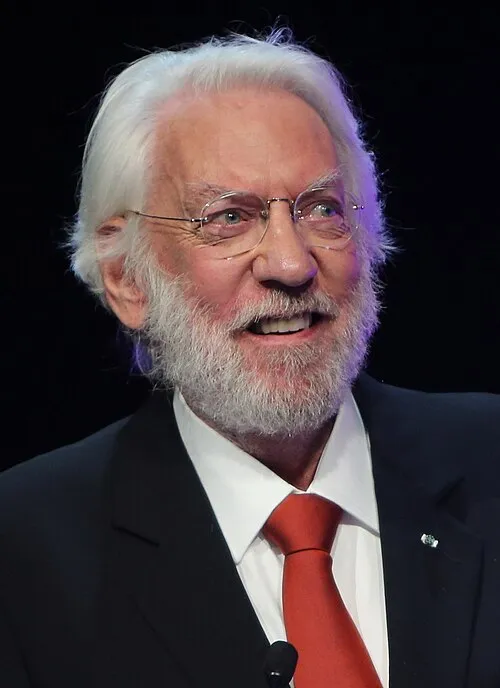In 2019, Iran's Air Defense Forces successfully shot down a U.S. surveillance drone over the strategically important Strait of Hormuz, escalating tensions between Iran and the United States. This incident marked a significant moment in the ongoing conflict between the two nations and highlights the critical importance of this vital maritime route.
On June 20
15
Important Days
52
Important Events
271
Births and Deaths
recorded.
Holidays and Occasions
Events
Births and Deaths

Day of the National Flag in Argentina: History and Celebrations
The Day of the National Flag, or "Día de la Bandera," is a significant national holiday in Argentina celebrated on June 20th every year. This day honors the memory of General Manuel Belgrano, who created the Argentine flag in 1812...

Earliest Possible Dates for the Summer and Winter Solstices: A Guide to Observance
The summer solstice, a significant astronomical event, marks the longest day of the year in the Northern Hemisphere and occurs when the North Pole is tilted closest to the Sun. This event typically occurs between June 20 and June 21 each year, but unique circumstances can lead to an earlier summer solstice...

Finnish Flag Day: Earliest and Latest Celebrations Explained
The Finnish Flag Day, known as 'Flag Day of Finland,' is a significant cultural celebration rich with history and tradition. It falls on the Saturday of Midsummer's Day in Finland, which can vary from June 20 to June 26, making June 20 the earliest possible date for this festive event...

International Surfing Day: Celebrate and Protect Our Oceans
Every year, on the third Saturday in June, surfers and beach lovers across the globe come together to celebrate International Surfing Day. This event, which takes place around the Summer solstice, serves not only as a tribute to the sport of surfing but also raises awareness about the need to protect our oceans and beaches...

Celebrate Nature's Cycles: Litha in the North and Yule in the South
Litha, also known as Midsummer, is a significant celebration in the Northern Hemisphere, while Yule marks the winter solstice in the Southern Hemisphere. Both of these celebrations are steeped in ancient traditions, rituals, and folklore that connect us to nature and the cycles of the Earth...

Gas Sector Day in Azerbaijan: Celebrating Growth and Innovation
Azerbaijan has long been recognized for its rich natural resources, particularly its significant gas reserves. Every year, the country celebrates Gas Sector Day, a special event dedicated to acknowledging the contributions of the gas industry to the national economy...

Understanding Martyrs' Day: A Commemorative Tradition in Eritrea
Martyrs' Day, or Yemharer Semaetat, is a significant national observance in Eritrea, held annually on June 20th. This day serves as a poignant reminder of the sacrifices made by those who fought for Eritrea's independence from Ethiopian rule...

West Virginia Day: Celebrating the Mountain State's Heritage
Every year, on June 20, West Virginians celebrate West Virginia Day, marking the anniversary of the state’s admission to the Union in 1863. This annual observance is not just a day off work; it's a vibrant festival filled with history, culture, and community spirit, allowing residents and visitors to connect deeply with West Virginia's unique heritage...

World Refugee Day: A Global Call for Compassion and Action
Every year on June 20, the world comes together to observe World Refugee Day, a day dedicated to raising awareness about the plight of refugees and recognizing their resilience in the face of adversity. Established by the United Nations General Assembly in 2000, this day serves as a reminder of the millions of individuals who have been forced to flee their homes due to conflict, persecution, and violence...

Adalbert of Magdeburg: A Legacy of Faith and Unity in Central Europe
Adalbert of Magdeburg, born around 910 AD, was a crucial figure in the establishment and expansion of Christianity in Central Europe during the 10th century. As a prominent missionary and ecclesiastical leader, he played a pivotal role in the Christianization of various Slavic tribes, significantly impacting the cultural and spiritual landscape of the region...

Florentina: Exploring Culture, Cuisine, and Fashion
Florentina is a name that resonates with warmth, elegance, and rich cultural heritage. Whether you are familiar with it as a culinary delight, a fashion trend, or a flare of vibrant lifestyle, Florentina embodies a unique charm that has captivated hearts around the globe...

Exploring the Life and Legacy of John of Matera
John of Matera, an influential theologian and monastic figure from the late 11th century, played a pivotal role in shaping Christian spirituality and monastic practices during the Middle Ages. His profound teachings and dedication to the monastic life have left an indelible mark on Christian history, specifically within the Benedictine tradition...

Blessed Margareta Ebner: A Mystic's Journey of Faith
Blessed Margareta Ebner, a 14th-century mystic and spiritual writer, is venerated for her deep piety and profound mystical experiences. Born in 1291 in the town of Wasserburg, Bavaria, Margareta became a member of the Dominican Order, where she dedicated her life to prayer and contemplation...

Methodius of Olympus: The Formative Theologian of Early Christianity
Methodius of Olympus, a significant figure in the early Christian church, is often considered an important theologian and thinker of the 3rd century. His work laid the foundation for various aspects of Christian doctrine that continue to influence theological discussions today...

Pope Silverius: A Martyr for the Faith in Early Christianity
Pope Silverius served as the 58th Pope of the Roman Catholic Church from 536 to 537 AD, during a tumultuous period characterized by political strife and theological disputes. His reign, though short-lived, is notable for its profound impact on the Church and its stance against the Arian controversies that plagued the early Christian community...




























